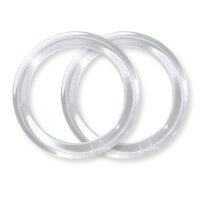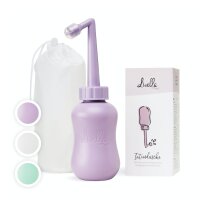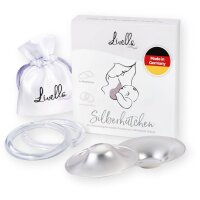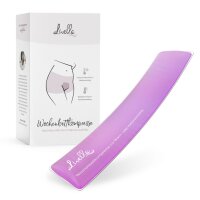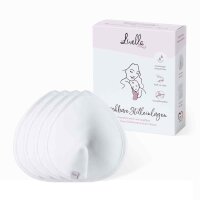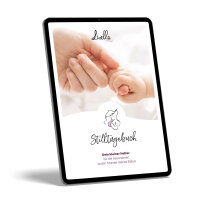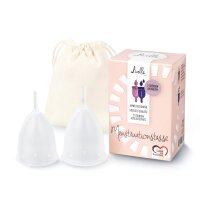The World Health Organisation recommends exclusive breastfeeding for 6 months. Thereafter, breastfeeding should be continued alongside solid foods for up to 2 years (or even longer). This means that, even if a mother decides to take the full 52 weeks of maternity leave she is legally entitled to in the UK, there will be an overlap between breastfeeding and the return to work.
Many new mothers are concerned that they might have to decide between breastfeeding and returning to work. But with the right preparation, going back to work doesn’t mean the end of breastfeeding.
What does the law in the UK say about breastfeeding and returning to work? What challenges do new mothers have to prepare for? And how to successfully manage breastfeeding when going back to work?
Table of Contents
Breastfeeding and returning to work: what the law says
Breastfeeding and returning to work: what are the challenges?
Breastfeeding and returning to work: tips for making it work
Breastfeeding and returning to work: frequently asked questions
A final word on breastfeeding and the return to work
Breastfeeding and returning to work: what the law says
In contrast to other countries, there are no legal requirements for employers to provide paid breastfeeding breaks or agree to shorter working hours for breastfeeding women. However, new mothers who are still breastfeeding when returning to work have legal protection.
Here is an overview of the legal rights breastfeeding employees enjoy in the workplace:
- Right to go back to the same job: Upon your return to work, you are entitled to go back to the same job as before. If you have taken more than 26 weeks of maternity leave and your old position is not available anymore, your employer must offer you a similar position on terms that cannot be less favourable than before.
- Risk assessment: Your employer is required to conduct a risk assessment of the working conditions and the workplace you will work in, taking into account the fact that you have recently had a child and are still breastfeeding. For the risk assessment to happen, you must inform your employer in writing that you are breastfeeding.
- Suitable rest area: Employers are required to provide a suitable area for new mothers to rest—ideally, this should be a private room that can also be used for expressing breast milk and is equipped with a fridge for storing the milk.
- Protection from discrimination: The 2010 Equality Act clearly states that treating a breastfeeding woman less favourably than another person constitutes an act of discrimination. This means that you cannot be discriminated against by your employer or anyone else in the company you work for because you are a breastfeeding mother.
- Right to request flexible working hours: As an employee, you have the right to request flexible working hours upon your return to work after maternity leave. However, be aware that your employer may refuse based on business-related reasons.
As a breastfeeding mum, you not only need to know your workplace rights, but you also need to be familiar with the obligations you have regarding breastfeeding and your return to work. Notably, you are required to:
- Communicate any changes regarding your planned return to work (regardless of whether you intend to return sooner or later) no later than 8 weeks before the day you are due to return to work.
- Inform your employer in writing about the fact that you are breastfeeding.

Breastfeeding and returning to work: what are the challenges?
The idea of breastfeeding and returning to work can be very daunting. That is because combining work and breastfeeding isn’t easy. There are various challenges breastfeeding mums face when going back to work, including:
- Keeping up their milk supply by expressing milk while at work,
- Ensuring that their baby is taken care of and fed in their absence,
- Making up for missed feeding sessions in the evenings and during the night,
- Managing the transition period,
- Avoiding nipple confusion when combining breastfeeding and bottlefeeding,
- Getting back into work, and
- Dealing with uncooperative employers.
Breastfeeding and returning to work: tips for making it work
Continuing breastfeeding when returning to work can be challenging. But with the right tips and tricks, you can make it work. Here are some practical mum hacks that will help you succeed:
- Plan ahead: If you want to successfully combine breastfeeding and work, you should start planning early. The return to work should actually already be on your mind when you start preparing for breastfeeding.
- Pump and store breast milk: The easiest way to keep breastfeeding when you return to work is to pump or hand express milk and have your childminder, relative or partner bottlefeed your baby in your absence.
- Label milk bottles: Most women express breast milk and store it in the fridge or freezer so that someone else can feed it to their baby while they are at work. But don’t forget to label expressed milk properly so that it’s clear which bottle needs to be used first.
- Talk to your employer: Breastfeeding and returning to work will be a lot easier if you keep your employer in the loop. Tell them about your plans to keep breastfeeding after your maternity leave is over. Maybe you can arrange for flexible working hours that will allow you to breastfeed during breaks or at least get some additional breaks in between so that you can pump milk.
- Find a childcare facility nearby: Having your child being looked after in a nearby facility will make things a lot easier. This way, you can not only breastfeed your little one before and after work, but also during breaks.
- Have a trial run: It’s always a good idea to have a trial run before your official return to work. If things don’t work out as planned, it’s a lot easier to make adjustments until everything runs smoothly.
- Talk to other breastfeeding mothers: Talking to other women who have been through the challenge of breastfeeding and returning to work can help you get a better understanding of what to expect when going back to work. They can give you some additional tips on how to best manage breastfeeding and work.
- Practise expressing milk before returning to work: The idiom ‘practice makes perfect’ also holds true for expressing breast milk. The more you practise, the better you will get. Start learning how to express milk well before the day when you go back to work to avoid any problems.
- Be flexible: You don’t need to work out a fixed feeding pattern that must be repeated every day. If you need to make changes to your feeding patterns, it’s not a problem. Keep it flexible.
- Get support if needed: If you find that your employer is unsupportive of breastfeeding, you should get some support. You can either reach out to your union representative or talk to a member of Maternity Action UK.
- Wear nursing pads: Many breastfeeding mums are concerned about leaking. Since you will continue breastfeeding and therefore need to keep your milk production up, it is, of course, probable that you will experience leaking at work. Wear nursing pads to keep dry and comfortable.

Breastfeeding and returning to work: frequently asked questions
Breastfeeding and going back to work is a subject that raises many questions among new mothers. Here are the answers to some of the most commonly asked questions surrounding breastfeeding and the return to work.
Is it possible to breastfeed and work full-time?
Returning to work is no reason to stop breastfeeding. Combining breastfeeding and work may be challenging, but there are many mothers who manage to do it—and so can you. There are different ways for continuing breastfeeding when going back to work. You just need to find the way that is most suitable for you, your baby and your work pattern.
How do I breastfeed when returning to work?
There are different possible scenarios when breastfeeding and returning to work:
- Expressing breast milk and having someone else feed it to your baby while you are at work and breastfeeding in the mornings and evenings.
- Breastfeeding before and after work and having someone else feed your baby formula during the day.
- Breastfeeding before, after and during work when your child is in a childcare facility that is located close to or even on the premises of your employing organisation.
- Breastfeeding as usual if your employer agrees to flexible working hours to accommodate your breastfeeding needs.
How do I maintain my breast milk supply while working?
Many new mothers are concerned that their milk supply will decrease when they miss feeds during their workday. In order to maintain your milk supply, you should breastfeed as much as possible when you and your baby are together. Regularly expressing milk while at work will also help prevent your milk supply from decreasing.
What is the policy for breastfeeding and work?
First things first, there is no such thing as a right to breastfeed at work in the UK. In contrast to other countries, there are no specific breastfeeding at work laws in the UK that provide for paid breastfeeding breaks or shorter working hours for breastfeeding mothers. However, different laws require employers to:
- Provide rest facilities for breastfeeding employees,
- Conduct a specific risk assessment,
- Prevent discrimination in the workplace that is aimed at the breastfeeding employee, and
- Seriously consider any requests to change to flexible working hours that are brought forward by the employee.
A final word on breastfeeding and the return to work
Continuing to breastfeed when returning to work is not impossible. Sure, there are different challenges new mothers need to prepare for, but it is doable. The most important thing is to be open to your employer about your wish to continue breastfeeding and to know your rights in the workplace.
There is no legal entitlement to a shorter working day or paid breastfeeding breaks for new mothers, but employers are required to:
- Ensure the employee’s health and safety,
- Protect the employee from discrimination,
- Provide suitable rest facilities. and
- Treat any request for flexible working hours in the same way they would for any other employee.
If you notice that your employer is not supportive of breastfeeding, you should get advice from other breastfeeding mothers or reach out to organisations that specialise in supporting breastfeeding mums upon their return to work, such as Maternity Action UK.
A final word on breastfeeding and the return to work
Continuing to breastfeed when returning to work is not impossible. Sure, there are different challenges new mothers need to prepare for, but it is doable. The most important thing is to be open to your employer about your wish to continue breastfeeding and to know your rights in the workplace.
There is no legal entitlement to a shorter working day or paid breastfeeding breaks for new mothers, but employers are required to:
- Ensure the employee’s health and safety,
- Protect the employee from discrimination,
- Provide suitable rest facilities. and
- Treat any request for flexible working hours in the same way they would for any other employee.
If you notice that your employer is not supportive of breastfeeding, you should get advice from other breastfeeding mothers or reach out to organisations that specialise in supporting breastfeeding mums upon their return to work, such as Maternity Action UK.
References
- Breastfeeding and going back to work - NHS (www.nhs.uk)
- Returning to work - Maternity leave and pay - Acas
- Protecting pregnant workers and new mothers - Risk assessment (hse.gov.uk)
- Protecting pregnant workers and new mothers - Rest and breastfeeding at work (hse.gov.uk)
- Discrimination - Managing pregnancy and maternity - Acas
- Asking for flexible working - Making a flexible working request - Acas
- Continuing to breastfeed when you return to work - Maternity Action
- What legal rights do breastfeeding mothers have when returning to paid employment? - La Leche League GB
- Workday Practicalities - La Leche League GB



